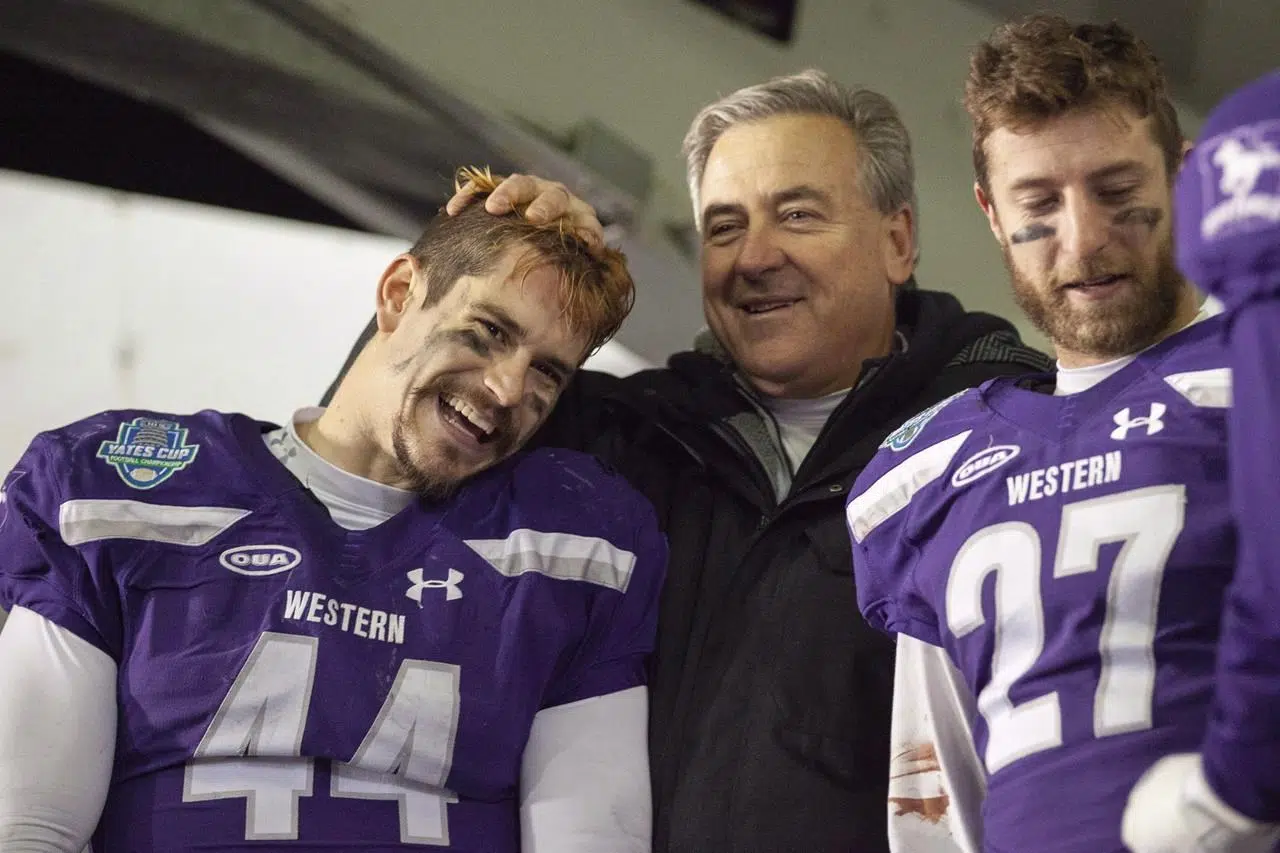
Western Ontario’s football program placing an emphasis on player safety
Winning is important to longtime football coach Greg Marshall, but not at the expense of player safety.
Marshall has won plenty in the game. He captured the 1980 Hec Crighton Trophy as a running back at Western and has won three Vanier Cups, 18 Yates Cup championships and two Canadian university coach-of-the-year honours on the sidelines with the Mustangs and McMaster University.
In 2004, Marshall claimed the Annis Stukus Trophy as the CFL’s coach of the year while with the Hamilton Tiger-Cats.
But with concussions in football having been linked to chronic traumatic encephalopathy (CTE) — a degenerative brain disease — Marshall and Western University are doing their part to make football as safe as possible.

